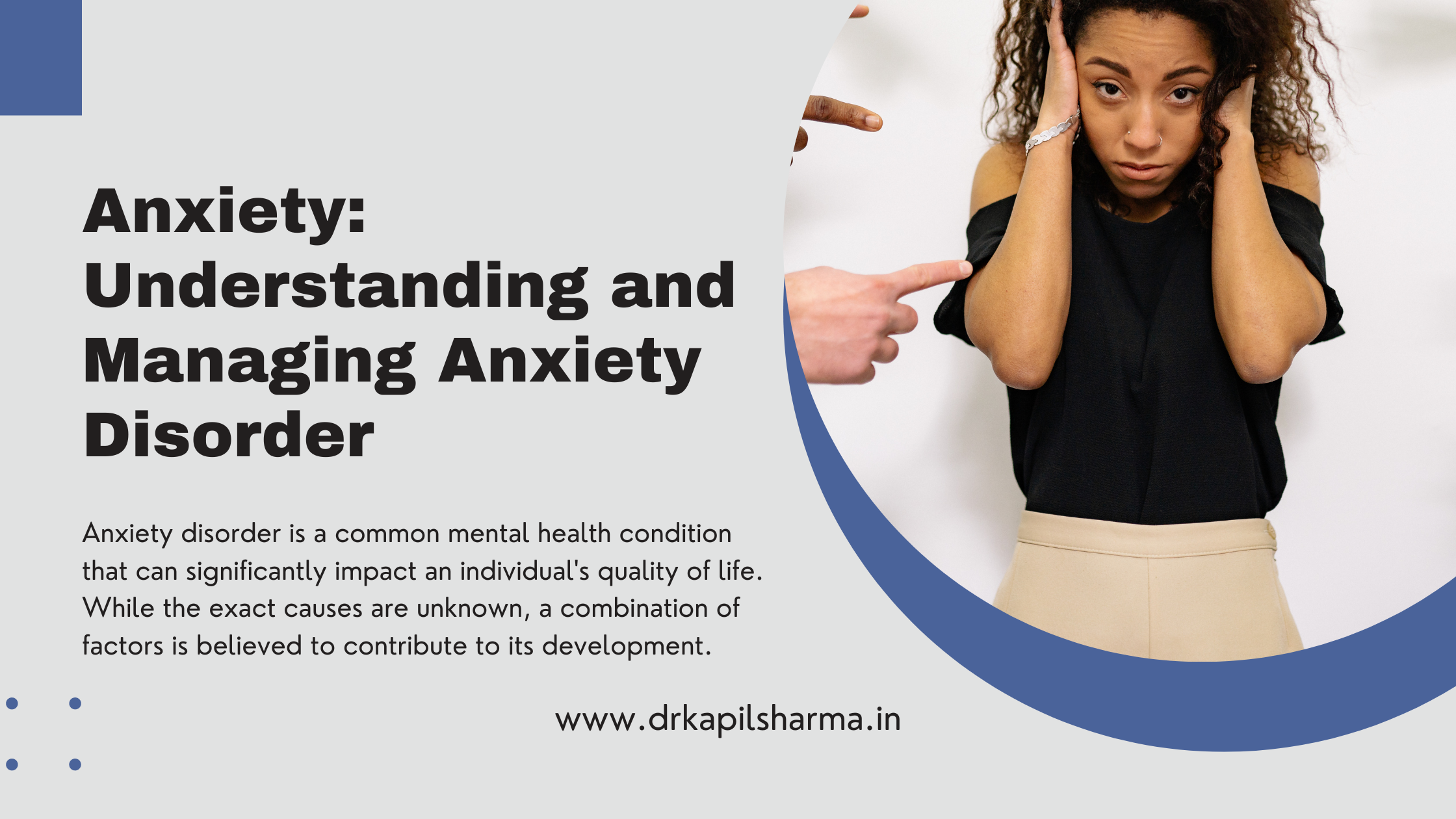
Anxiety: Understanding and Managing Anxiety Disorder
Introduction:
Anxiety is a normal and sometimes necessary response to stress or danger. However, when it becomes persistent, excessive, and interferes with daily activities, it may be a sign of an anxiety disorder. Anxiety disorders affect millions of people worldwide and can significantly impact their quality of life. In this blog, we will discuss the causes, symptoms, and management strategies for anxiety disorder.
Causes:
The causes of anxiety disorders are not fully understood, but a combination of factors is believed to contribute to their development. These factors include genetics, brain chemistry, personality, life experiences, and stress.
Symptoms:
The symptoms of anxiety disorder vary depending on the type of disorder but generally include:
- Excessive worry or fear
- Restlessness or feeling on edge
- Fatigue
- Irritability
- Difficulty concentrating
- Muscle tension
- Sleep disturbances
- Panic attacks
Management:
Anxiety disorder can be managed through various strategies, including:
- Psychotherapy: Cognitive-behavioral therapy (CBT) is a type of psychotherapy that helps individuals identify and change negative thought patterns and behaviors that contribute to anxiety.
- Medications: Antidepressants and anti-anxiety medications can help manage symptoms of anxiety disorder.
- Relaxation techniques: Techniques such as deep breathing, progressive muscle relaxation, and mindfulness meditation can help reduce anxiety.
- Exercise: Regular exercise has been shown to reduce symptoms of anxiety and improve mood.
- Lifestyle changes: Avoiding alcohol, caffeine, and nicotine can help reduce symptoms of anxiety. Additionally, maintaining a healthy diet and getting enough sleep can help manage symptoms.
Conclusion:
Anxiety disorder is a common mental health condition that can significantly impact an individual’s quality of life. While the exact causes are unknown, a combination of factors is believed to contribute to its development. Fortunately, there are many effective management strategies available, including psychotherapy, medications, relaxation techniques, exercise, and lifestyle changes. If you or someone you know is experiencing symptoms of anxiety disorder, seek professional help from the best psychiatrist doctor. With the right treatment, an anxiety disorder can be managed, and individuals can lead fulfilling lives.

